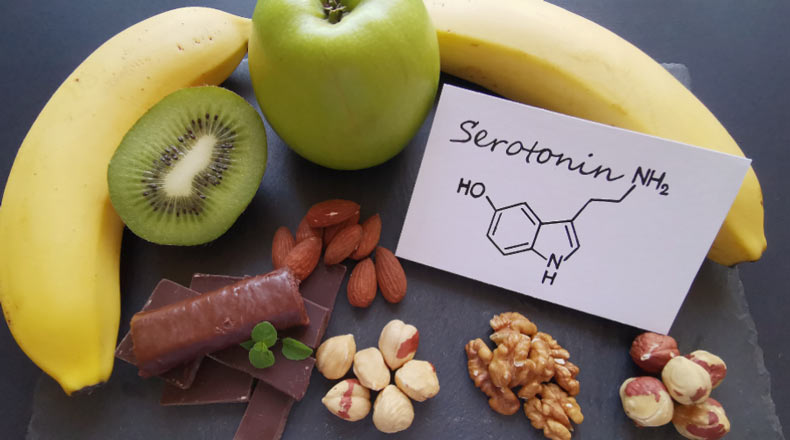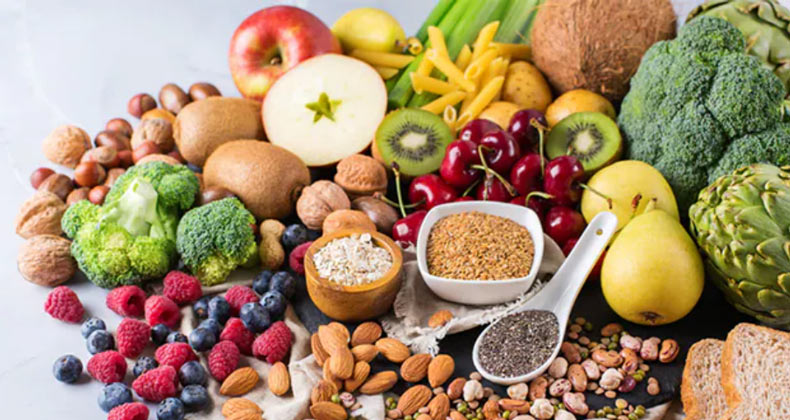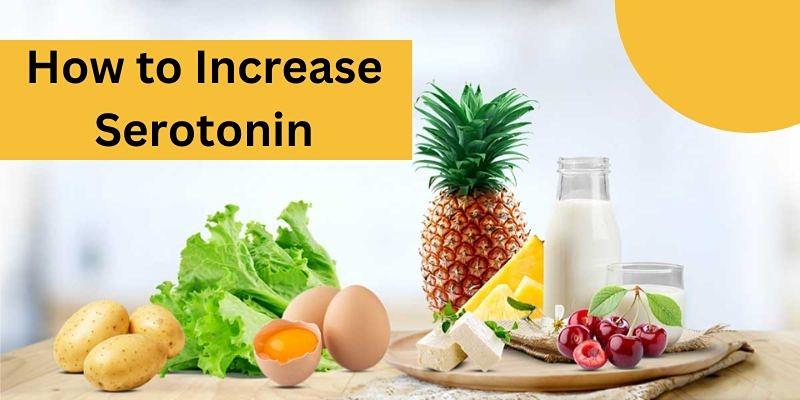If you’ve ever had trouble sleeping, dealing with depression, or feeling down and anxious, your serotonin levels may need a boost! Serotonin is an important neurotransmitter produced in the brain that helps regulate mood, sleep, memory, and more.
Fortunately, natural ways exist to increase serotonin production and help improve well-being. In this blog post, we will discuss the importance of serotonin and several methods you can use to naturally increase serotonin in your body.
What is serotonin?
Serotonin is a neurotransmitter found throughout the body, including in the brain. It is sometimes called the “happy” chemical because it plays an important role in regulating mood and emotions.
Serotonin also helps control other bodily functions such as sleep, hunger, digestion, temperature regulation, muscle contraction, and memory. Low levels of
Serotonin is linked to depression, anxiety, and other mental health issues. As such, many people take antidepressants that increase the serotonin available in the brain.
How does serotonin work?

Serotonin sends signals from one nerve cell (neuron) to another. It is released from neurons as a chemical messenger and binds to receptors on nearby cells, activating those cells. When serotonin binds to a receptor, it changes the electrical signals sent and received between neurons.
The serotonin receptors also interact with neurotransmitters, such as dopamine and norepinephrine, which can affect how we feel and behave. By influencing neurons and other neurotransmitters, serotonin plays an important role in modulating a wide range of bodily and emotional responses.
What problems are associated with low serotonin levels?
Serotonin deficiencies are linked to several psychological and physiological problems, including:
-Depression: Low levels of serotonin can lead to depression due to the impact it has on mood regulation.
-Anxiety disorders: A lack of serotonin may also cause or exacerbate anxiety disorders.
-Insomnia: Insomnia is a common symptom of serotonin deficiencies.
-Low libido: Low serotonin levels may decrease a person’s sex drive.
-Headaches and Migraines: Headaches and migraines can be caused by too little serotonin in the body.
-Aggressive behavior: Low serotonin is associated with aggressive behavior.
What’s the difference between dopamine and serotonin?

Dopamine and serotonin are neurotransmitters, chemicals that help transmit signals between neurons in the brain. They regulate our emotions, thoughts, behaviors, and physical movements. While dopamine and serotonin share certain similarities, they also have distinct differences.
Dopamine is known as a pleasure-reward neurotransmitter. It is when we experience something pleasurable, such as eating food or having sex, which helps to reinforce the behavior. Dopamine also plays a role in motivation and focus, helping us stay motivated and achieve our goals.
On the other hand, serotonin is a calming neurotransmitter and is largely responsible for our mood. It helps regulate our sleep, appetite, libido, and happiness. Low serotonin levels can lead to depression, but higher levels can help us feel happier and more content with life.
7 Foods That Could Boost Your Serotonin
1. Turkey
– Turkey is packed with tryptophan, an amino acid that helps produce serotonin. Plus, it’s a lean source of protein that can help keep you full and satisfied for longer.
2. Bananas
– Bananas contain two compounds, tyrosine, and phenylalanine, which can help raise dopamine and serotonin levels. Plus, they’re a simple snack to grab on the go or add to your breakfast.
3. Salmon
– Fatty fish such as salmon are high in omega-3 fatty acids, which help boost serotonin levels in the brain. For an easy dinner idea, try baking a filet with some fresh herbs for an added kick of flavor.
4. Kale
– Leafy greens like kale are high in folate, which can help the body produce more serotonin and dopamine. Try adding it to your smoothie or chopping it up into a salad!
5. Sunflower seeds
– Sunflower seeds contain tryptophan, which helps the body create serotonin. Try snacking on roasted sunflower seeds as a crunchy snack, or sprinkle them over your morning oatmeal.
6. Fruit and nut mix
– Nuts and dried fruit are great sources of serotonin-boosting B vitamins, such as folate and magnesium. Mix them for a snack that’s easy to take on the go.
7. Dark chocolate
– Dark chocolate is delicious and contains cocoa, which helps boost serotonin levels in the brain. Get dark chocolate with at least 70% cocoa content for maximum benefits.
Serotonin and your diet: Does it work?
Serotonin is a neurotransmitter that regulates our mood, energy levels, and overall well-being. It regulates appetite, digestion, sleep cycles, and even pain perception.
Research has suggested that what we eat can affect our serotonin levels. Eating foods high in carbohydrates can increase serotonin levels while eating foods high in protein can decrease them.
Studies have found that diets higher in carbohydrates can improve symptoms of depression and anxiety. These diets typically include healthy, complex carbohydrates such as whole grains, fruits and vegetables, beans, and legumes. Eating these foods may help to regulate the release of serotonin.
Other ways to boost serotonin
In addition to getting adequate sleep and sunlight exposure, there are a few other ways to increase the natural production of serotonin in your body. Eating foods that contain tryptophan and exercising regularly can both help boost brain levels of serotonin.
Foods rich in tryptophan are poultry, fish, eggs, nuts, seeds, tofu, soybeans, and legumes. Incorporating these into your diet is an easy way to increase serotonin levels in the brain.
Exercising regularly can also help boost serotonin production.
Exercise stimulates the release of endorphins that interact with certain brain receptors associated with well-being and mood regulation. Even 30 minutes of exercise daily can make a huge difference in your overall mental health and well-being.
Finally, it is important to maintain healthy relationships with friends and family or join support groups or therapy if needed. Socializing can be stimulating for the brain, as well as provide emotional support, which can help boost serotonin production.
FAQs
How can I raise my serotonin levels?
Serotonin is a neurotransmitter associated with feelings of well-being and happiness. To raise serotonin levels, engaging in activities that promote emotional health and well-being, such as regular exercise, healthy eating habits, adequate sleep, spending time outdoors in nature, and engaging in activities that bring joy, is important. Additionally, research shows that supplements like 5-HTP, L-tryptophan, probiotics, and St John’s Wort may help to increase serotonin levels.
Which foods boost serotonin?
Certain foods contain tryptophan, an amino acid necessary for serotonin production. Foods high in tryptophan include turkey, eggs, nuts, seeds, fish, oats, and legumes. Complex carbohydrates like wholegrain bread and cereals can also help promote serotonin release from the brain. Lastly, foods rich in omega-3 fatty acids, such as salmon and mackerel, can also help to boost serotonin levels.
Why is my serotonin low?
Various factors, including genetics, lifestyle habits, and environmental factors, can cause low serotonin levels. Poor nutrition, lack of exercise, and inadequate sleep are all associated with reduced serotonin levels. Additionally, chronic stress or trauma can also lead to lowered serotonin production. Identifying the underlying cause of low serotonin toto address the issue effectively.
Conclusion
In Conclusion, increasing serotonin levels can be done through dietary changes, exercise, and supplements. Eating complex carbohydrates that contain tryptophan, engaging in regular aerobic exercise, and taking an appropriate dose of 5-HTP or SAMe are the three most common methods for increasing serotonin. It is important to note that although these methods may help improve moods, they should never be used as a substitute for professional medical advice.




